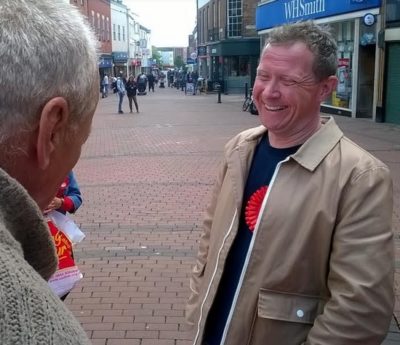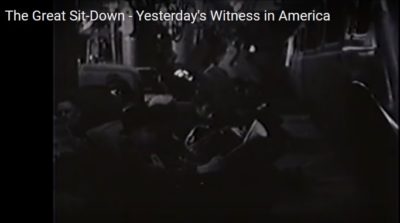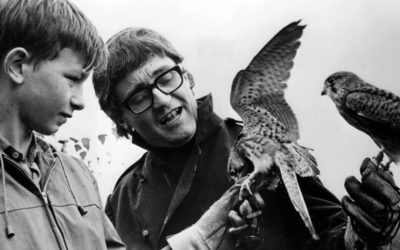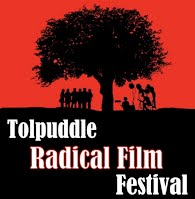 Somerset Labour’s Wes Hinckes reviews the recent Liberating Arts event.
Somerset Labour’s Wes Hinckes reviews the recent Liberating Arts event.
In the struggle for equality and social justice, the first war that has to be won is the propaganda war. The arts are the most effective tool in that battle for hearts and minds and must always be at the forefront of effective political organising, campaigning and education.
Liberating Arts builds on the highly successful 2016 Liberating Arts Day and is a hybrid event that shares characteristics with an arts festival, an academic conference and a celebration of trade unionism such as the Tolpuddle Festival and the Durham Miners’ Gala.
Liberating Arts 2017 built on the highly successful 2016 Art Of The Trade Unions day, and was an all-day programme of performances, cultural discussions, and workshops that allowed activists, trade unionists and campaigners to meet with theatre companies, cultural workers and creative activists from the UK and beyond, to share insights about the central role of culture in our collective struggle for a more equal and just world.

The full programme is available on the Liberating Arts website – https://gftuliberatingarts.
My own track through the day consisted of
#1 BRISTOL RADICAL HISTORY GROUP
Since 2006 BRHG have organised over 250 events; staging walks, talks, gigs, recreations, films, exhibitions, trips through the archives and fireside story telling. They have several active research projects, publish a range of books and pamphlets and host an online archive.
BRHG projects and events are organised by local people from Bristol and are NOT funded by universities, political parties, business or local government.
History from below is essentially the study of the non-elite; the exploited classes in a social order, the forgotten voices of the anonymous men and women ignored by the official histories, and thus a critique of dominant and elite versions of the past. However, rather than the passive ‘of below’, we have the active ‘from below’ which denotes that history is being made by these people rather than merely being done to them. Making is thus the history of self-organisation and resistance in the face of oppression, dispossession and poverty.
Eastville Workhouse (community project) – https://www.youtube.com/
#2 THEATRE, CULTURE & THE LABOUR MOVEMENT
 The discussion explored how art and in particular theatre can forge socialist culture within communities, and how this relates to past and present practice in political movements.
The discussion explored how art and in particular theatre can forge socialist culture within communities, and how this relates to past and present practice in political movements.Salford Community Theatre Project is a community theatre initiative, using theatre and performance to explore life in Salford. They promote, through community participation, a discussion on local ethics and civic responsibility.
Love on the Dole – https://youtu.be/XYbVx1e3I9E
#3 WE ARE THE LIONS, MR MANAGER
The remarkable story of Jayaben Desai the inspirational leader of the 1976-78 Grunwick Strike. She was recently listed amongst the women who have had the biggest impact on women’s lives over the past 70 years as part of the Radio 4 Women’s Hour Power List. She not only stood up for workers’ rights and against oppression with selfless dedication, but with her steadfast resolve, she turned the dispute into a national movement for human rights and dignity inspiring future generations.
Short clip – https://www.youtube.com/watch?
#4 TELEVISION DRAMA AS POLITICS

Chris Jury interviews Tony Garnett about his career in UK television drama and the ‘political’ impact of his work.
Tony Garnett started his career working on The Wednesday Play. The plays he worked on included the “very, very personal” Up the Junction (1965), directed by Loach, which features a then still illegal abortion, but he was soon under contract as a producer.
The best known of his contributions to The Wednesday Play series in this role is the docudrama Cathy Come Home (1966), again directed by Loach. Garnett in 1967 introduced Loach to writer Jim Allen, who would be one of the director’s collaborators for a quarter of a century. Garnett worked with Allen too, sometimes independently of Loach (The Lump, 1967), but also with him on such works as Allen’s The Big Flame (1969), which had been shot in February and March 1968, but was withheld from transmission by the BBC.
Tony Garnett’s Keynote Speech From Liberating Arts 2017 – https://gftuliberatingarts.
#5 ANOTHER BBC IS POSSIBLE
 Co-hosted by the Tolpuddle Radical Film Festival and the Campaign for Press & Broadcasting Freedom, this session uses a screening of The Great Sit Down: Yesterday’s Witness in America (51 minutes) to contrast the BBC then with how it is now.
Co-hosted by the Tolpuddle Radical Film Festival and the Campaign for Press & Broadcasting Freedom, this session uses a screening of The Great Sit Down: Yesterday’s Witness in America (51 minutes) to contrast the BBC then with how it is now.The film is a 1976 BBC documentary that tells of the United Auto Workers’ struggle for Union recognition in 1936/ as men and women recall the sit-down strike against General Motors that eventually won union recognition in February 1937.
In light of current BBC output, what is extraordinary about this film is how pro-union it is! It is almost inconceivable the BBC ever could have sanctioned, let alone broadcast, such a programme.
So the question is, how can we get to a place where the BBC can once again express a plurality of political opinion, rather than simply being a mouthpiece for neoliberal, establishment hegemony?
The Great Sit Down Strike (full film) – https://www.youtube.com/watch?
I would liked to have attended many more workshops and showings including:
Belonging The Truth Behind the Headlines Trailer – https://www.youtube.com/watch?
Brandalism – https://www.youtube.com/watch?
Art Not Oil – https://www.youtube.com/watch?
I hope that gives everyone some idea of what the day covered!
